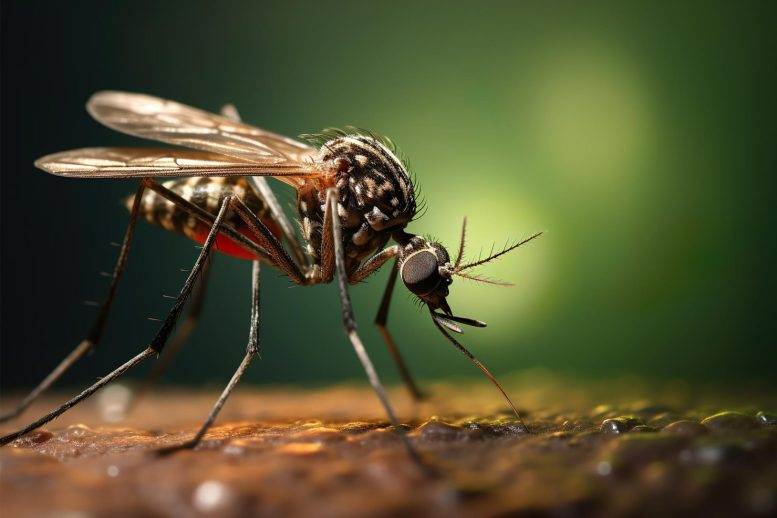
The Florida Department of Health has issued a mosquito-borne illness advisory following four confirmed cases of malaria in Sarasota County. All the infected individuals have been treated and recovered. The Department continues to collaborate with local partners to conduct aerial and ground mosquito spraying to minimize further transmission.
The Florida Department of Health has issued an advisory following four recovered cases of malaria in Sarasota County, prompting increased mosquito control efforts. Residents are advised to protect themselves with repellents and clothing, drain standing water, and report any dead birds, as part of statewide surveillance for mosquito-borne diseases.
Today, June 27, the Florida Department of Health (Department) is issuing a statewide mosquito-borne illness advisory following four confirmed and recovered local cases of malaria in Sarasota County. All individuals have been treated and have recovered. Malaria is transmitted through infected mosquitoes. Residents throughout the state should take precautions by applying bug spray, avoiding areas with high mosquito populations, and wearing long pants and shirts when possible — especially during sunrise and sunset when mosquitos are most active.
The Department continues to work closely with local partners and county mosquito control. Aerial and ground mosquito spraying continues to be conducted in these areas to mitigate the risk of further transmission.
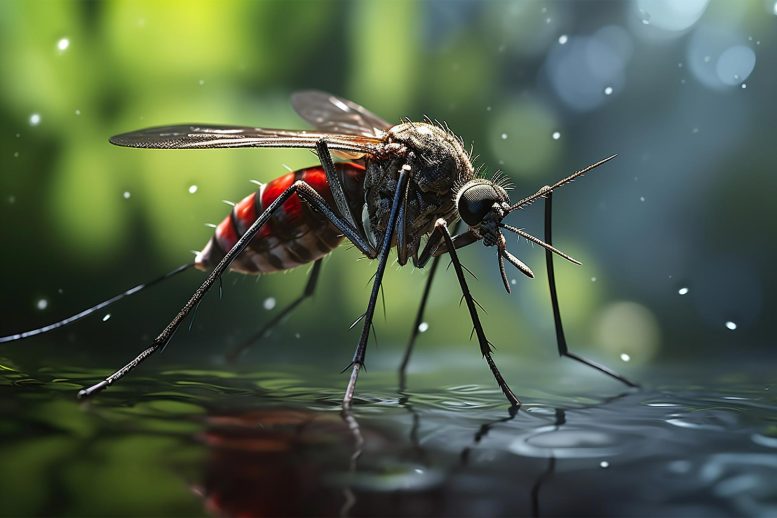
The public is urged to take necessary precautions by applying bug spray, wearing protective clothing, and avoiding areas with high mosquito populations. Additionally, residents are encouraged to drain standing water where mosquitoes can breed and cover windows and doors with screens to keep mosquitoes out. The use of appropriate repellents, safe for children and adults, is recommended.
In Florida, Malaria is transmitted through infected Anopheles mosquitoes. The cause of malaria in these cases has been identified as the Plasmodium vivax species. Effective treatment is readily available through hospitals and other healthcare providers. Individuals in this area with symptoms of fever, chills, sweats, nausea/vomiting, and headache should seek immediate medical attention.
The Department advises the public to remain diligent in their personal mosquito protection efforts by remembering to “Drain and Cover.”
DRAIN standing water to stop mosquitoes from multiplying.
- Drain water from garbage cans, house gutters, buckets, pool covers, coolers, toys, flowerpots, or any other containers where sprinkler or rainwater has collected.
- Discard old tires, drums, bottles, cans, pots and pans, broken appliances and other items that aren’t being used.
- Empty and clean birdbaths and pet’s water bowls at least once or twice a week
- Protect boats and vehicles from rain with tarps that don’t accumulate water.
- Maintain swimming pools and keep appropriately chlorinated. Empty plastic swimming pools when not in use.
COVER doors and windows with screens to keep mosquitoes out of your house.
- Repair broken screening on windows, doors, porches, and patios.
COVER skin with clothing or appropriate repellent.
- Clothing – Wear shoes, socks, long pants, and long-sleeves. This type of protection may be necessary for people who must work in areas where mosquitoes are present.
- Repellent – Apply mosquito repellent appropriately.
- Always use repellents according to the label. Repellents with DEET, picaridin, oil of lemon eucalyptus, para-menthane-diol, 2-undecanone, and IR3535 are effective.
- Use mosquito netting to protect children younger than 2 months old.
Tips on Repellent Use
- Always read label directions carefully for the approved usage before you apply a repellent.
- Apply insect repellent to exposed skin or clothing, but not under clothing.
- Treat clothing and gear with products containing 0.5% permethrin. Do not apply permethrin directly to skin.
- Some repellents are not suitable for children. Ensure repellent is safe for children and age-appropriate:
- Mosquito repellents containing lemon eucalyptus oil or para-menthane-diol should not be used on children under the age of three years.
- DEET is not recommended on children younger than two months old.
- Avoid applying repellents to the hands of children.
- Parents should apply repellent to their hands first and then transfer it to the child’s skin and clothing.
The Department continues to conduct statewide surveillance for mosquito-borne illnesses, including West Nile virus infections, Eastern equine encephalitis, St. Louis encephalitis, malaria, chikungunya, and dengue. Residents of Florida are encouraged to report dead birds to the Florida Fish and Wildlife Conservation Commission.

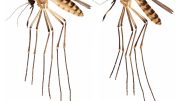
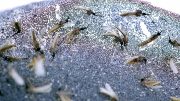
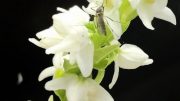
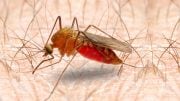
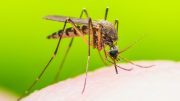
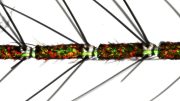
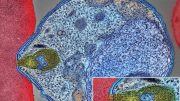
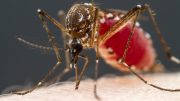
Malaria is also “transmitted” by immigration policy which allows infected people into the US. It’s not the only disease being “transmitted.”